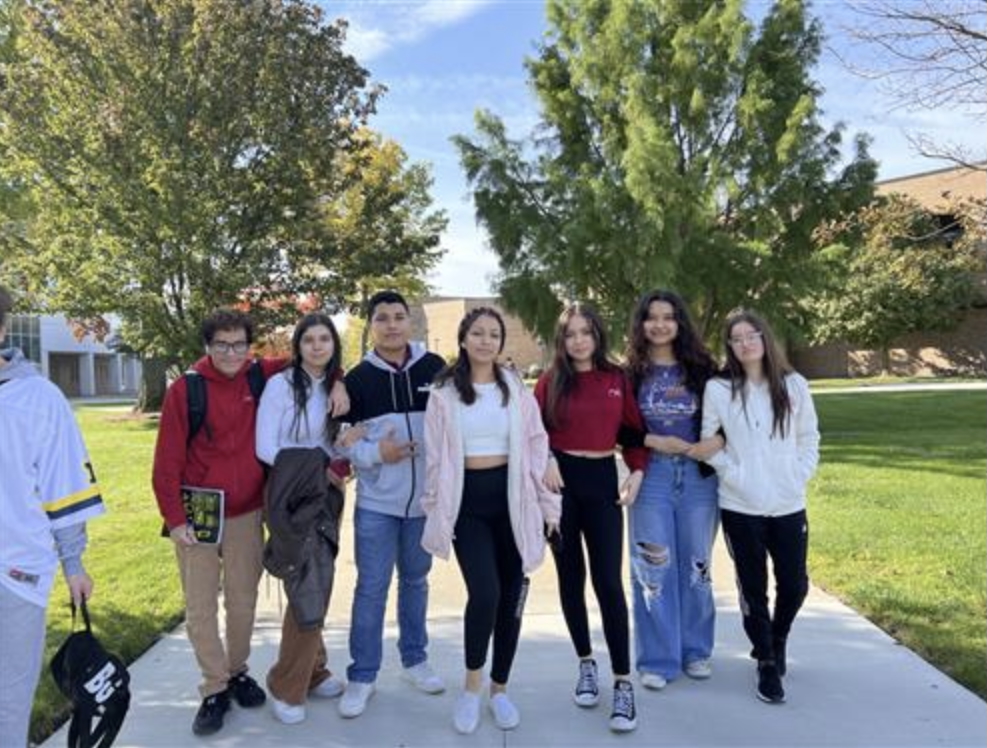Struggles of Being a Senior at Henry Ford Early College
Gallery

For many students, senior year represents a countdown to freedom, a final stretch of high-school life filled with celebrations, milestones, and the promise of adulthood. However, for students at Henry Ford Early College (HFEC), senior year is something different entirely. It’s a balancing act between high-school expectations and the high-pressure world of college coursework. For Ziyad Abdulaziz, the year has been less about coasting toward graduation and more about discovering resilience in the face of overwhelming challenges.
Being a senior in high school is a big deal for students in America. It entails not only the end of one of the most important four years of one’s youth, but also marks the beginning of adulthood. In many cases, this means deciding which college to attend, filling out college applications, choosing a major, and the path they wish to take for their future career. At HFEC, students are taught how to navigate not just high school, but also college at an early age. The five-year program gives students the opportunity to complete both their high school diploma and a college associate degree. This program then makes transferring to a university immensely easier.
Ziyad Abdulaziz learned to navigate and balance the busy life of a senior at HFEC. While in the education program, Abdulaziz is well on his way to completing his associate degree in pre-engineering with the hope of transferring to the University of Michigan-Ann Arbor to continue his career path in engineering.
While traditional seniors worry about prom and senioritis, HFEC seniors navigate a uniquely demanding schedule. For Abdulaziz, an average week would look like this: “On Mondays and Wednesdays, I have classes starting at 11 in the morning. After which I also have work.” Abdulaziz works as a barista at a local coffee shop, Mocha Me. Abdulaziz continues, “I still want to have time to go to the gym, so I wake up early in the morning to be able to go to the gym before my classes begin and still have time to get ready. On Tuesdays, I have classes from noon to around seven at night, and because of my classes, I am unable to work those days. Same goes for Thursdays. I have classes that go on till late in the evening, but I still like to try and make time for work and the gym. Regardless of my busy schedule, I also still try hard to find time to spend with my family.”
Abdulaziz says, “I see my parents for a little bit. I see my mom in the morning before my classes and her work, and I see my dad after my classes for a little bit during my break before work. However, by the time I get home, they’re both typically asleep.” This highlights the intense and rigorous schedule Abdulaziz must follow to balance his priorities, which can cause him to lose quality time with his family. “We still make an effort to spend time together,” Abdulaziz says. “Even if it is just sitting in the living room together and talking. Other times we go for picnics or the movies together to maintain our quality family time, regardless of our busy schedules.” Abdulaziz must move between the two academic worlds of high school and college, each with its own set of deadlines, teachers, and expectations.
In terms of the daily struggles Abdulaziz faces, he said, “Some days I come home and have no motivation to do homework or study, and there isn’t a lot of free time to do other things that I genuinely want to do. For things like my hobbies. For example, one of the things I like doing is playing volleyball, and I am on the team for a local volleyball team. Next semester, I have to schedule my classes in the morning so I have time to go to volleyball practice and then go to work.”
HFEC students often discuss the social isolation that comes with their path. They spend years on a college campus while their former middle-school friends attend traditional high schools. Schedules rarely match, and invitations to events are hard to accept. HFEC seniors carry the weight of two worlds, not because it’s easy, but because they’re brave enough to chase a future that demands everything now so it can offer even more later.
Abdulaziz offers his advice to those struggling with the demands of being an Early College student: “You have to manage your time wisely. For example, the way I go to the gym in the morning, so I have time to get ready before my classes and then schedule my work so that it doesn’t interfere with my school, while maintaining regular study habits and making time for the people that I love and spend time with them.”
Abdulaziz later explains how he thinks his life has changed since becoming a senior: “Freshman year, it’s mostly high school classes, and I got to be with my friends, and we all had the same schedules. There was also the fact that I didn’t have many responsibilities the way I do now. As of senior year, things have changed, and I hardly see the students I used to spend time with before anymore, since they all have their own paths in life. Now I only have classes with one or two of my friends, and it feels like a huge shift from the high school I once knew. As a senior, we are expected to be a lot older and mature; not to mention the stress and pressure of applying to universities and choosing what major you want to go into upon graduation.”
When Abdulaziz walks across the stage with both a high school diploma and a college associate degree, it will symbolize far more than academic achievement. It will represent every late night, every sacrifice, and every moment she chose to keep going.
